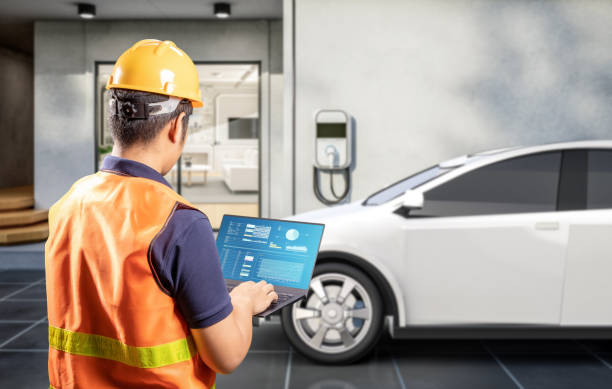Transitioning to electric vehicles (EVs) is a significant step toward a sustainable and ecologically friendly future. As more individuals choose to drive electric vehicles, there is an increasing demand for efficient and trustworthy installations of electric car chargers. A well-executed installation optimizes efficiency while guaranteeing the safety of the charging process. In this extensive tutorial, we will explore crucial advice for maximizing effectiveness while installing electric car chargers.
1. Selecting the Right Charger Type
The first step in optimizing efficiency is choosing the right electric car charger for your specific needs. Level 1 chargers are typically standard household outlets and are suitable for overnight charging. On the other hand, Level 2 chargers, which require professional installation, provide faster charging times. Assess your daily driving habits and charging requirements to determine the most suitable charger for your lifestyle.
2. Understanding Electrical Capacity
It’s important to assess your home’s electrical capability before starting the installation procedure. To be sure your current electrical system can handle the needs of an electric vehicle charger, a certified electrician can evaluate it. It could be required to upgrade your electrical panel in order to accommodate the extra load. This proactive thinking guarantees a flawless charging experience and averts future problems.
3. Location, Location, Location
The performance of your electric car charger can be greatly affected by where you install it. By minimizing the distance between your car and the charging station, optimal location ensures faster charging times and lower energy losses. Think about weather protection as well, because exposure to inclement weather might have an impact on the charger’s lifespan and performance.
4. Investing in Smart Charging Technology
Smart charging technology is a game-changer for optimizing efficiency. These systems allow for remote monitoring and control, enabling you to schedule charging during off-peak hours when electricity rates are lower. Some smart chargers even have the ability to adapt to your energy consumption patterns, ensuring efficient charging without straining the grid.
5. Professional Installation is Non-Negotiable
While some enthusiasts may be tempted to embark on a do-it-yourself (DIY) installation, the complexity of electric car charger setups makes professional installation imperative. Certified electricians possess the expertise to handle electrical connections safely, ensuring compliance with local building codes. Professional installation also safeguards against potential hazards, providing peace of mind and long-term reliability.
6. Upgrading to a Dedicated Circuit
For optimal efficiency, it is advisable to have a dedicated circuit for your electric car charger. This prevents overloading existing circuits and minimizes the risk of tripping breakers. A dedicated circuit ensures that your EV charger receives a consistent and reliable power supply, maximizing its efficiency and minimizing the potential for electrical issues.
7. Consideration for Future Expansion
As the electric vehicle market continues to evolve, it’s prudent to consider future expansion when installing your charger. Opt for a scalable setup that can accommodate advancements in charging technology. This forward-thinking approach ensures that your charging infrastructure remains relevant and efficient as electric vehicle technology advances.
8. Regular Maintenance and Inspection
Efficiency optimization extends beyond the installation phase. Regular maintenance and inspection of your electric car charger are essential for prolonged functionality. Periodic checks for wear and tear, loose connections, and software updates can prevent potential issues and guarantee a consistently efficient charging experience.
9. Utilizing Renewable Energy Sources
For those committed to a greener lifestyle, integrating renewable energy sources into the charging process is a viable option. By adding solar panels or wind turbines, one may produce clean energy and lessen the carbon imprint that comes with using electric vehicles. This environmentally friendly strategy supports the more general objective of sustainable transportation.
10. Learning About Utility Incentives and Programs
Numerous utility companies provide incentives and initiatives to promote the installation of electric vehicle chargers. Learn about any potential discounts on power prices, tax credits, or rebates for charging electric vehicles. By taking advantage of these chances, the installation becomes more economical and enhances the overall effectiveness of the infrastructure for charging.
Conclusion
Optimizing efficiency in electric car charger installation involves a combination of informed decision-making, professional expertise, and a commitment to ongoing maintenance. You can make sure that your electric car charging arrangement is not only effective but also future-proofed for the rapidly changing electric vehicle technology by paying attention to these pointers. Adopting these behaviors benefits the experience of each individual user as well as the group’s efforts to create a future of transportation that is both sustainable and energy-efficient.


